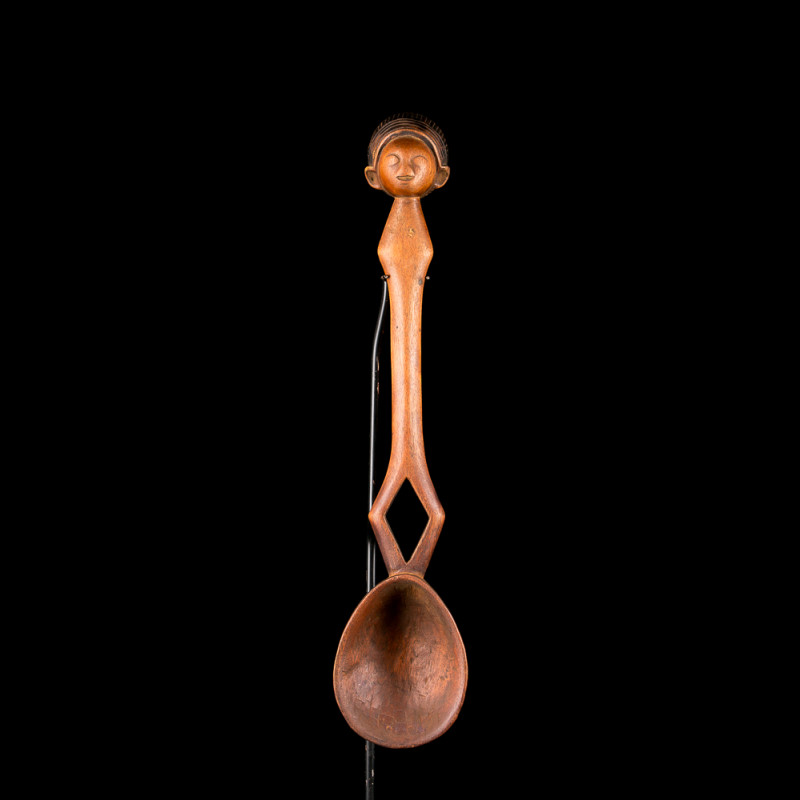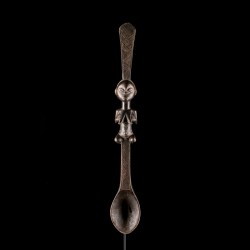












If we refer to etymology, the name spoon is derived from the Greek word kocblias which means spiral shell, in Latin it became cocblearium. It is generally customary, when locating the origin of the spoon, whose use predates that of the fork, to go back to Pharaonic Egypt and to cite the spoons of the new empire.
In the Middle Ages spoons were made of horn and wood, followed by brass and pewter spoons, before the use of more noble materials such as ivory, gold and silver and glass.
In Central Africa, spoons are often figurative for aesthetic reasons.
It is not to be denied that the function of the spoon was intentionally transformed to play other roles, in some cases it was closely associated, as a meaningful symbol, with political authority, social prestige and religious hierarchy.
It also became an external sign of wealth and, by analogy, of fecundity, since a well-made spoon belongs to the person who can afford an abundant and varied diet, who can present offerings to the ancestors and thus win their good grace, and to the person who wants to ensure the protection of the spirits, sometimes represented on the spoons themselves as a symbol of generosity and hospitality.
Data sheet
You might also like

If we refer to etymology, the name spoon is derived from the Greek word kocblias which means spiral shell, in Latin it became cocblearium. It is generally customary, when locating the origin of the spoon, whose use predates that of the fork, to go back to Pharaonic Egypt and to cite the spoons of the new empire.
In the Middle Ages spoons were made of horn and wood, followed by brass and pewter spoons, before the use of more noble materials such as ivory, gold and silver and glass.
In Central Africa, spoons are often figurative for aesthetic reasons.
It is not to be denied that the function of the spoon was intentionally transformed to play other roles, in some cases it was closely associated, as a meaningful symbol, with political authority, social prestige and religious hierarchy.
It also became an external sign of wealth and, by analogy, of fecundity, since a well-made spoon belongs to the person who can afford an abundant and varied diet, who can present offerings to the ancestors and thus win their good grace, and to the person who wants to ensure the protection of the spirits, sometimes represented on the spoons themselves as a symbol of generosity and hospitality.
